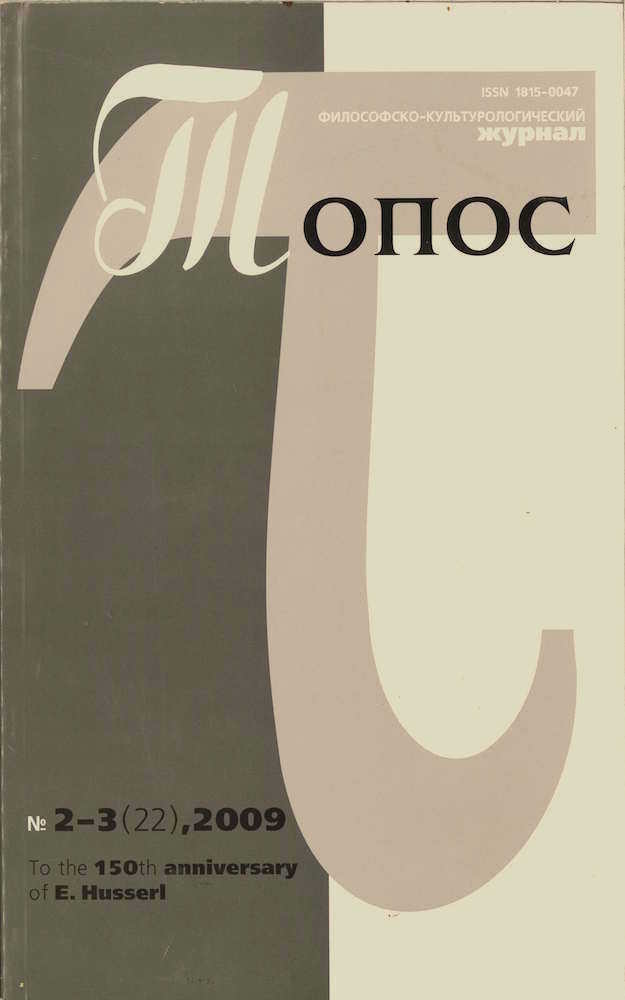Epoché and transcendental reduction in Husserl’s course of lectures First Philosophy
Article
Abstract
[In Russian]
The aim of this article is to clarify the basic methodological procedures of Husserl’s phenomenology – epoche and reduction. Development of the thought in Husserl’s course of lectures First Philosophy (1923–1924) is stipulated by the shift from «the Cartesian way to transcendental philosophy» to the psychological one. The cause for this shift is interpretation of the concepts of epoche and reduction in the light of the base phenomenological intuition of horizonality (Horizonthaftigkeit) of consciousness. The possibility of carrying out of reduction within the framework of «the psychological way to phenomenology» is stipulated by the properties of transcendental consciousness itself, i. e. by its horizonality, intentionality, and reflexivity. Ultimately, reduction is based on the possibility of 1) splitting of the I in the process of reflection, and 2) revision of all preceding life. This revision is the carrying out of reduction. The analysis of «phenomenological theory of phenomenological reduction» as presented in First Philosophy enables us to explicate Husserl’s understanding of reduction. Transcendental reduction is reflexive disclosure of intentional history of intimacy with the world (Weltvertrautheit), sedimented in intentional implications; this disclosure is carried out through revealing the acts of «positing» (Setzung) at «lower» levels of consciousness, i. e. in the sphere of habitualization and passive acceptance.
Downloads
This journal allows the author(s) to hold the copyright without restrictions. Topos Journal uses CC BY-NC-ND 4.0 license (license URL: http://creativecommons.org/licenses/by-nc-nd/4.0).



